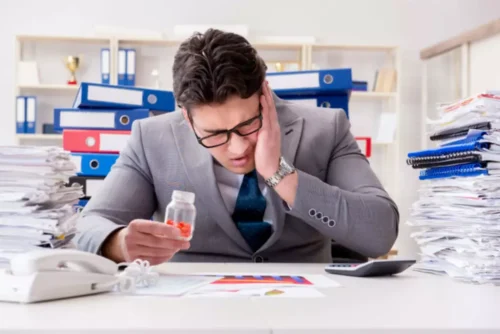
Heavy drinkers who suddenly stop drinking may experience any range of dangerous symptoms, so it’s important for those experiencing withdrawal to undergo medically-assisted detox. According to the National Institute on Alcohol Abuse and Alcoholism (NIAAA), alcohol is the most commonly used substance in the United States, with over 75% of individuals aged 12 and older reporting lifetime consumption. Alcohol consumption spans a spectrum from low-risk to severe alcohol use disorder (AUD). Alcohol withdrawal syndrome poses a significant clinical challenge arising from the spectrum of AUD—a prevalent condition affecting a substantial portion of the United States population.

Diagnosis and Tests
Submit your number and receive a free call today from a treatment provider. Alcohol withdrawal is caused by prolonged exposure to large amounts of alcohol and can therefore be prevented through abstaining from or at least strongly limiting one’s exposure to alcohol as to not develop an alcohol use disorder. Research also notes that an intravenous administration of benzodiazepines can help decrease the risk of delirium tremens. They might start seeing and hearing things that are not there and experience sensations, such as pins and needles.

How soon after treatment will I feel better?
If you think you’re dependent, you must seek medical help and talk to a health professional at your GP surgery about how to reduce your drinking. Ashley Alt is a Connecticut-based writer specializing in women’s health and wellness content. As a mom of two, her areas of interest lie in subjects modern mothers seek information on, including mental health, self-care and beauty. When she isn’t writing, she can be found at spin class or on her patio with friends. Your health and wellness is unique to you, and the products and services we review may not be right for your circumstances. We do not offer individual medical advice, diagnosis or treatment https://ecosoberhouse.com/article/how-long-does-cocaine-stay-in-your-system/ plans.
- If your pattern of drinking results in repeated significant distress and problems functioning in your daily life, you likely have alcohol use disorder.
- Most patients will require daily evaluations for up to five days after their last drink, but evaluations may increase or decrease in frequency as necessitated by changes in symptom severity.8 These visits can be with any health care professional.
- If your symptoms persist for a long time, you may have post-acute withdrawal syndrome (PAWS).
- For some, symptoms already start to subside, while others begin to experience more severe ones.
Day Six

Those with a wider circle of support have a better chance of staying sober. It’s important to be honest about your alcohol use — and any other substance use — so your provider can give you the best care. A non-contrast MRI brain revealed posterior white matter abnormalities with some haemorrhagic change in the right occipital lobe. In the clinical setting, the changes were felt consistent with diagnóstico alcohol withdrawal syndrome symptoms of PRES (see Fig. 2A–C). His cerebrospinal fluid (CSF) was bland, without significant pleocytosis, but had a raised protein (0.72 g/L; no detectable oligo-clonal bands).
- They can help you find resources, care and support that’ll help you reduce alcohol intake safely, and also give you the best chance at a positive outcome.
- Alcohol withdrawal symptoms include irritability, fatigue, shaking, sweating, and nausea.
- However, if symptoms worsen, it is advisable to seek immediate medical attention so that individuals receive appropriate treatment.
- If you experience insomnia, it’s worth remembering that your sleep patterns will almost certainly start to return to normal as your brain recovers from withdrawal.
- Treatment providers are available 24/7 to answer your questions about rehab, whether it’s for you or a loved one.
Continuing Education Activity
People having experienced alcohol withdrawal may suffer from sleep problems or minor signs of an overactive nervous system, such as fastened heartbeat, agitation, or sweats, for a few months. Alcohol use disorder can lead to various physical and mental health conditions. The most severe symptoms tend to disappear within days, whereas less intense ones may last longer. Still, try to keep in mind that these symptoms — though uncomfortable — are temporary. Seizures often occur in the early stages of withdrawal, and they may happen in the absence of other AWS.
Who is at risk for alcohol withdrawal syndrome?
Alcohol withdrawal syndrome is most accurately diagnosed by a doctor who asks a person about their medical history and symptoms, followed by conducting a physical exam, says Farrell. A doctor may also perform a toxicology screening, which can be used to determine how much alcohol is present in the body. «I needed professional help, as I had severe withdrawal symptoms of a DT nature with hallucinations, a possible seizure, and fear I would fall over dead any second. I went to the ER and detoxed five days in the hospital.» If physical symptoms continue after 11 days of abstinence, seek medical attention. Those persistent symptoms might have some other cause than alcohol withdrawal. Going into the second day of abstinence from alcohol, people typically report a wide variety of experiences.

- When in doubt, clinicians can refer to the DMS-V criteria for diagnosis.
- The boy’s clinically distressing withdrawal symptoms, both psychological and physiological, persisted for seven days during a hospitalization.
- Our alcohol self-assessment can help you identify if the amount you drink could be putting your health at serious risk.
- «Anxiety, dizzy, no sleep, exhausted. Does anyone ever feel like an electric current sometimes runs through your body? But it’s getting better every day.»
- They may also do a blood test called a toxicology screen to measure the amount of alcohol in a person’s system.
- Alcohol rehab counselors provide support during the highs and lows of alcohol withdrawal.
Symptoms of alcohol withdrawal tend to peak 24 to 72 hours after your last drink. An electro-cardiogram on admission showed a sinus rhythm without voltage evidence of left ventricular hypertrophy. Basic blood tests revealed normal full blood count, renal function, thyroid function tests, and B12/folate.


Comentarios recientes